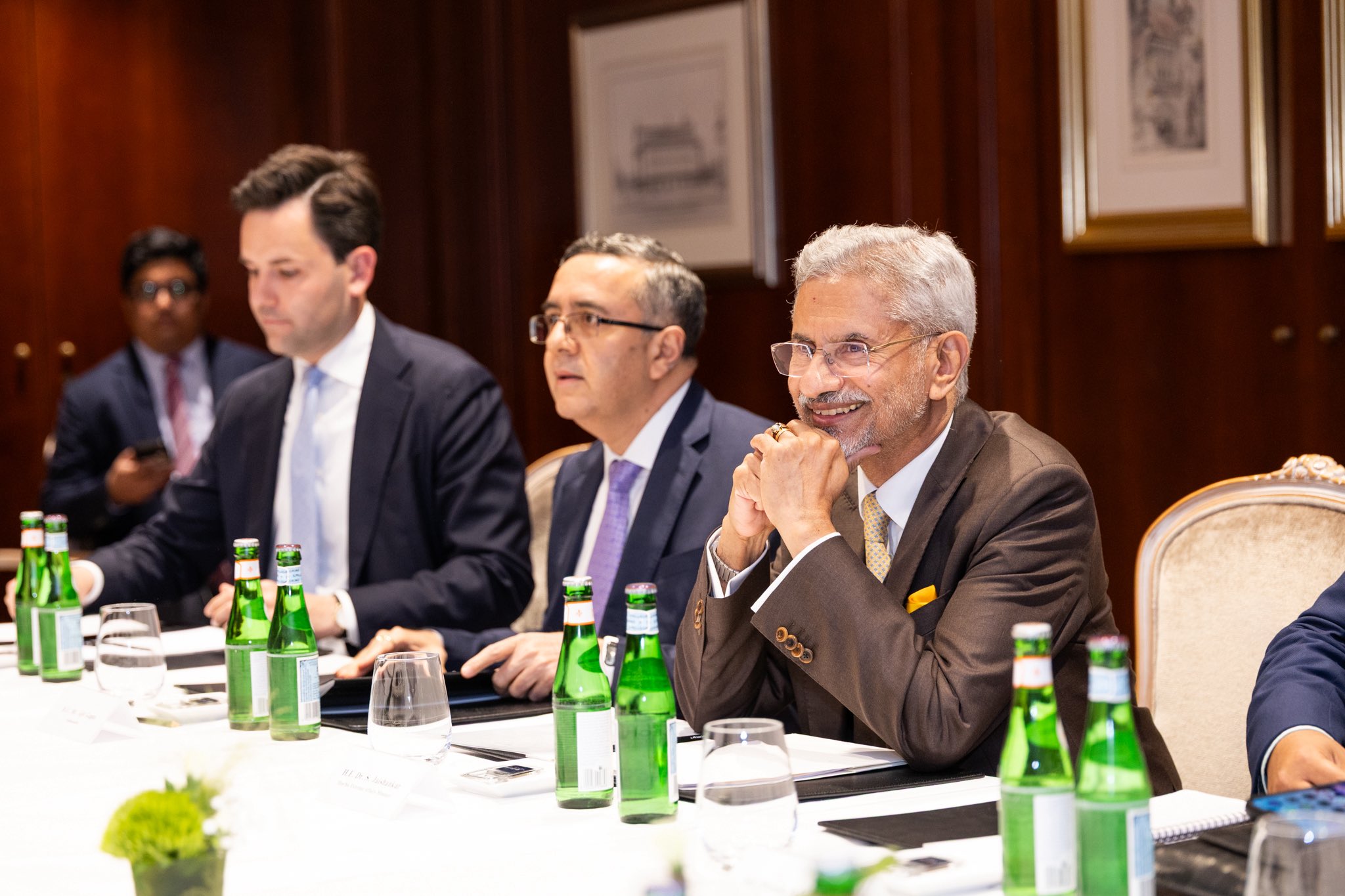Jaishankar Blames West for Enabling Pakistan's Military Rule
External Affairs Minister S. Jaishankar has criticised Western countries for their long-standing support of military regimes in Pakistan, arguing that such backing has deeply undermined democracy in the region.

|
| Image Source: FM on X |
“No one has supported the military regime and undermined democracy in Pakistan in so many ways as much as the West,” Jaishankar said in an interview with Danish newspaper Politiken. He pointed out that despite Pakistan’s repeated violations of Indian sovereignty in Kashmir since 1947, democratic nations in Europe have continued to back Islamabad’s military governments.
“That large, democratic Europe has stood side by side with military dictatorships in the region,” he remarked, adding that terrorism, like climate change, poverty, and pandemic aftershocks, remains one of the world’s greatest collective threats.
Currently on a three-nation tour of Europe — including the Netherlands, Denmark, and Germany — Jaishankar emphasised India's stance on respecting sovereignty and international borders. “But my worldview and my view of Europe are shaped by my own experiences. You talk about the inviolability of borders — well, why don't we start with the inviolability of my borders?” he said. “That’s where my world begins.”
Energy and Strategic Interests
Jaishankar also defended India’s continued oil imports from Russia amid Western criticism. He argued that European nations themselves resorted to the Middle East to meet energy needs after reducing Russian imports — often outbidding others.
“Wealthy Europe turned to the Middle East because it had a problem with Russia and offered inflated prices to get oil redirected to Europe,” he said. “So what happened was that many countries — not just us — could no longer afford it.”
“What was the rest of the world supposed to do? Say ‘okay, we’ll just do without energy because Europeans need it more than us?’” he added.
Ceasefire with Pakistan Was Bilateral
In a separate interview with Danish broadcaster TV 2, Jaishankar confirmed that the May 10 ceasefire agreement between India and Pakistan was achieved solely through direct military communication, countering claims that it involved third-party mediation.
“This was something that we negotiated directly between the militaries of the two countries,” he said, clarifying that the truce followed India’s Operation Sindoor, which targeted Pakistan-based terror infrastructure.
“We had the conflict for a few days and we resolved that conflict for the moment… through an understanding for the cessation of fighting and military action,” he noted.
According to Jaishankar, Pakistan’s military conveyed its willingness to halt hostilities after India launched precision airstrikes on May 7 against nine terrorist camps in Pakistan and Pakistan-occupied Kashmir in retaliation for the April 22 Pahalgam attack that killed 26 civilians.
“We hit them very hard on the morning of May 10… and that caused the Pakistanis to say, ‘Ok, we’re prepared to stop the firing and reach an understanding,’” Jaishankar said.
Pakistan retaliated with attempted strikes on Indian military installations between May 8 and 10, all of which were intercepted or repelled by Indian forces. The ceasefire was formally confirmed later on May 10 by Foreign Secretary Vikram Misri, who announced a mutual agreement to end all hostilities across land, air, and sea.
